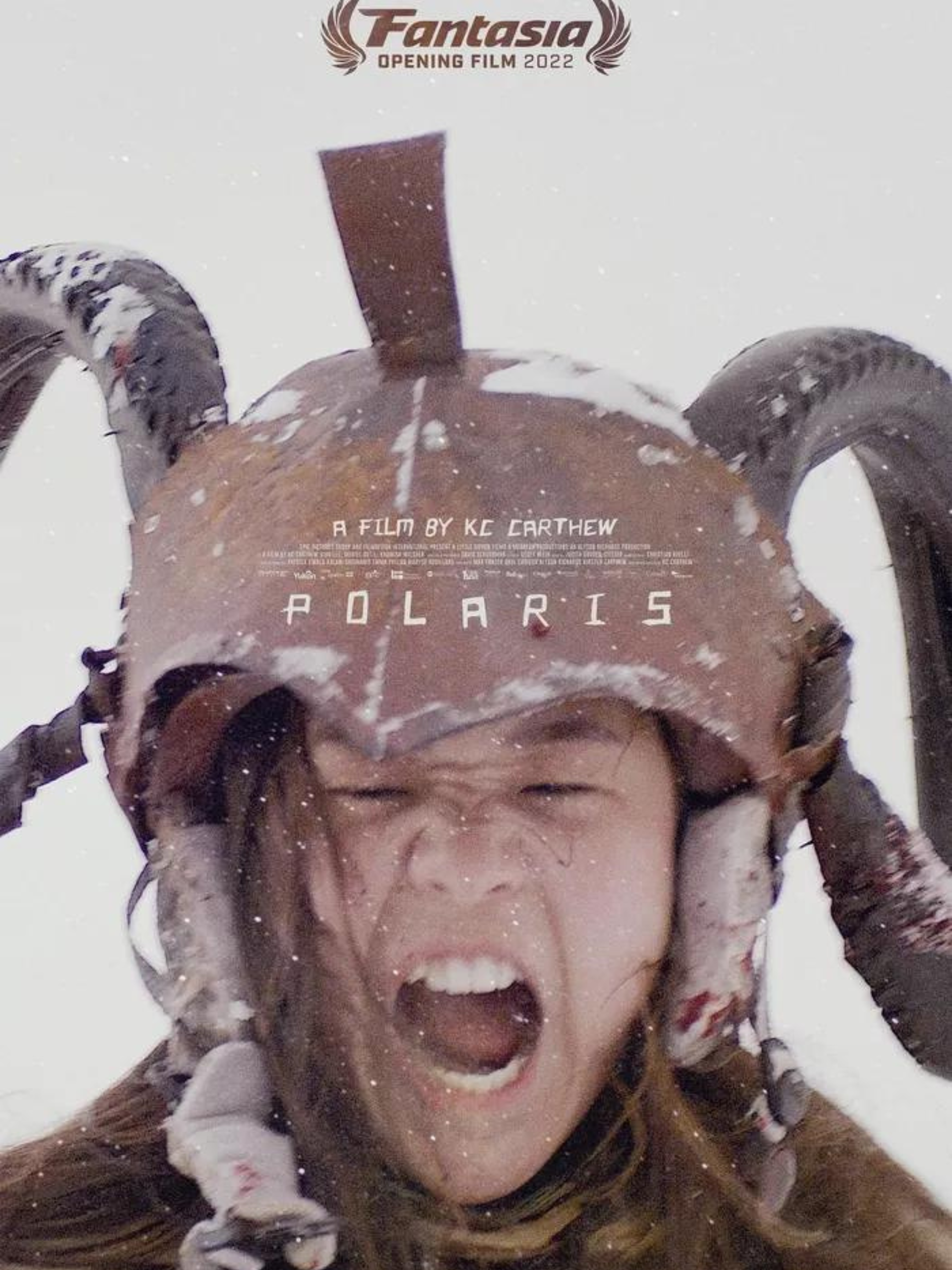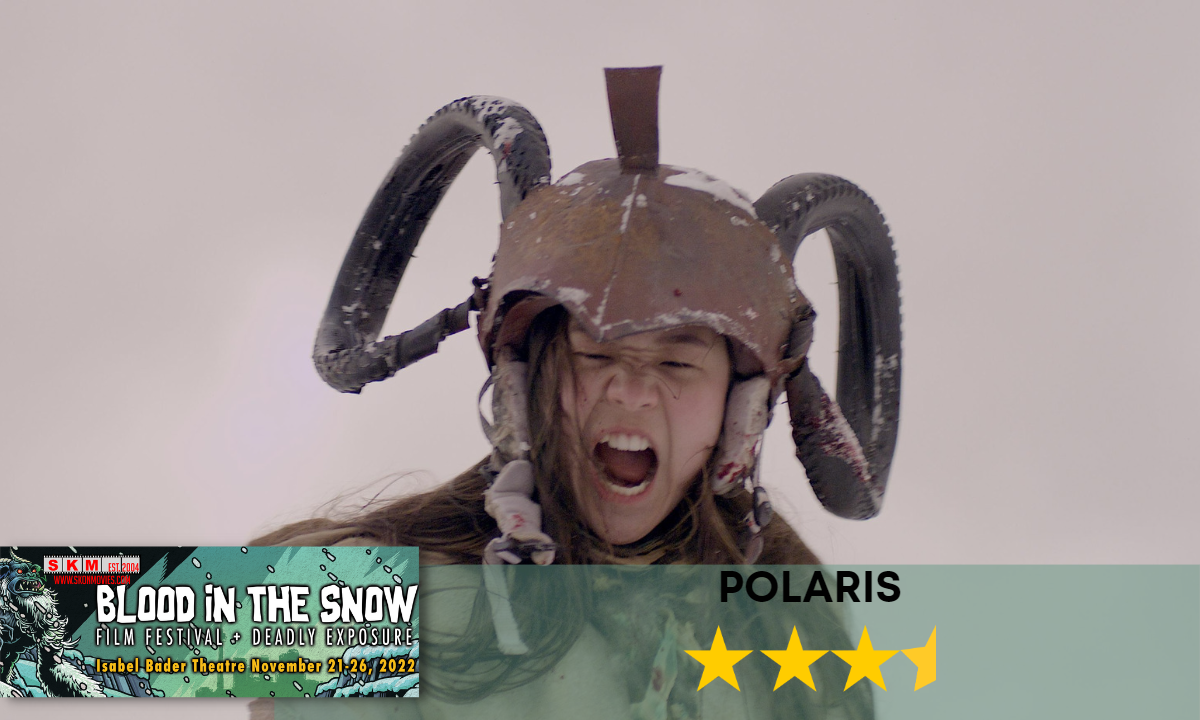Polaris – Blood in the Snow 2022
Martin Scorsese Teaches Filmmaking

November 21 to November 26, 2022

This review was originally published as part of my coverage of Fantasia 2022
A young girl raised by a polar bear in a frozen post-apocalyptic world has to escape from a band of marauders in Polaris. It is 2144, and Sumi (Viva Lee) is a young girl who roams the snowbound wasteland with her polar bear mother, Mula. However, Sumi is separated from Mula following an attack from an all-female group of marauders knowns as Morads. Sumi has to fight for survival and find her way back to Mula, finding help from the elderly scavenger Dee (Muriel Dutil) and a reanimated Frozen Girl (Khamisa Wilsher).
Polaris is a snowbound post-apocalyptic fantasy film written and directed by K.C. Carthew. With a plot that’s best described as a mix between George Miller’s Mad Max films and Zacharias Kunuk‘s Atanarjuat: The Fast Runner, the plot of Polaris is built nearly entirely around the performance of Korean-Canadian child actor Viva Lee, who plays the film’s performance a Sumi, a girl with some vague magical abilities, who is following the titular north star Polaris, to be reunited with her polar bear mother. Along the way, Sumi faces some threats in the form of the Morads while also gaining companions like Dee and the Frozen Girl.
Featuring practically no dialogue, save for a few unsubtitled phrases of the Morad language created for the film, Polaris is a film that is quite dependent on visual storytelling. However, K.C. Carthew does a solid job at making the plot of Polaris easy to understand, despite the lack of dialogue. This is in no small part due to the lead performance by Viva Lee, who is the major driving force behind Polaris and helps to guide the audience through this bloody post-apocalyptic adventure from start to finish.


 Official Gift Card for Fever Original Candlelight. Candlelight concerts bring the magic of a live, multi-sensory musical experience to awe-inspiring locations never before used for this purpose in Toronto.
Official Gift Card for Fever Original Candlelight. Candlelight concerts bring the magic of a live, multi-sensory musical experience to awe-inspiring locations never before used for this purpose in Toronto.